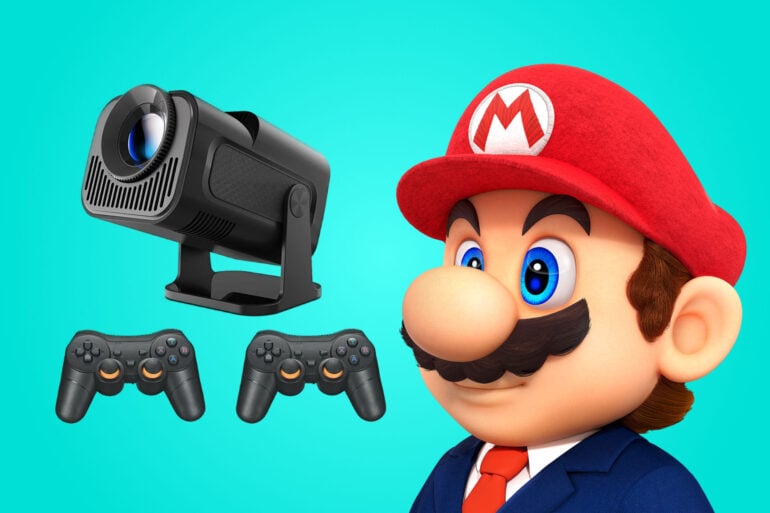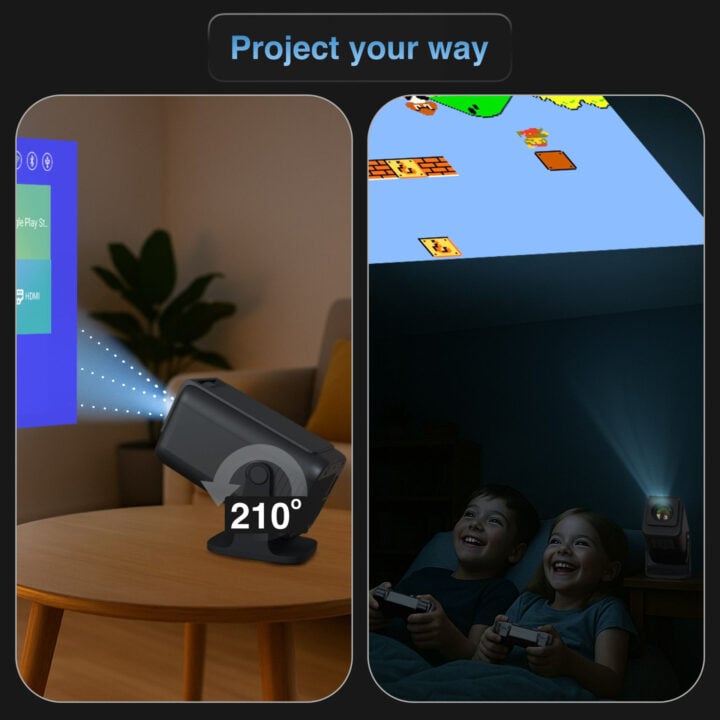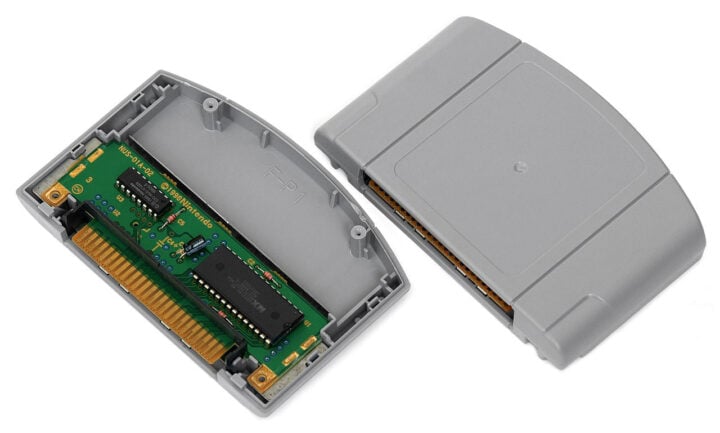
Timed to cash in on last-minute Father’s Day shopping, Laser recently launched a gaming projector pre-installed with more than 80 games to play on the big screen.
Laser, a long-running Australian consumer tech company, licensed the projector’s games, including Ubisoft’s 1994 Street Racer, and World Rally from 1993. Marketed as a nostalgic gift for gamer dads, the $299 gaming projector is relatively affordable for what it offers — two controllers, a 120-inch projection size at 720p, and an Android operating system that supports casting from mobile devices.
Interestingly, the projector’s online listing mentions that the device also includes “built-in emulators for NES, SNES, Mega Drive, SEGA Genesis, N64, Gameboy, GBA, Atari, SNK and more.” It continues by telling buyers they can “download additional ROMs from the internet” to bolster the projector’s game library.
In the context of emulation, a ROM, short for read-only memory, is the file taken from a game cartridge. Using emulation software, it’s possible to play ROMs of games without needing the original hardware.
It makes it easy to play a bunch of games and manage a library in one place, but the legalities are a different story.
Are emulators and ROMs legal?
In advertising its gaming projector, Laser specifically mentioned five Nintendo consoles, ranging from the Nintendo Entertainment System to the 3D-capable Nintendo 64. One promotional image depicts a pair of children using the projector to play what looks to be the original Super Mario Bros.
However, Nintendo is known for its strong stance towards emulation, ROMs, and piracy. The Japanese company has secured multiple legal victories against ROM-sharing sites in recent years. GadgetGuy contacted Nintendo for comment about its stance on emulators and ROMs.

When asked about the legality of the gaming projector’s built-in emulators, Chris Lau, Laser’s Managing Director, likened emulators to music players.
“Emulators themselves are legal,” Lau said. “They’re simply programs that mimic older gaming systems so you can play classic games on modern devices such as the Laser Gaming Projector.”
He described ROMs as being “a bit more complicated” compared to the emulators used to play them.
“Many retro ROMs are widely available online, but most of these are still copyrighted and not legal to download unless you already own the original game.”
However, that claim is different to what’s published on Nintendo’s intellectual property webpage. Specifically, the part about accessing ROMs when owning the original game.
“It is illegal to download a Nintendo ROM from the internet whether or not you own an authentic copy of that game,” the website reads.
Nintendo also references a practice called “format shifting”, which lets Australians create copies of certain copyrighted materials for private use. However, as outlined on a fact sheet published by the Australian Copyright Council, making copies of copyrighted materials from one format to another is highly specific.

Under the Australian Copyright Act, individuals can make personal copies of radio and TV shows for later access, or digitise books and newspapers, for example.
A separate fact sheet dedicated to game copyright mentions “there is no general provision allowing a purchaser of a computer game to make a backup copy without the permission of the copyright owner.”
Muddying the waters somewhat, the Copyright Act permits personal backup copies of computer programs, but this does not apply to games. For games, this is what the Australian Copyright Council’s fact sheet says:
“If you wish to make a backup copy of a computer game, you should check whether or not the licence allows you to do so. If there is nothing stated in the licence about backup copies, you will generally need permission from the copyright owner to make a backup copy.”
What games could you install on Laser’s gaming projector?
Based on Nintendo’s public position and the facts as outlined by the Australian Copyright Council, there would be very few, if any, Nintendo-specific ROMs that could be legally installed on Laser’s gaming projector. Similarly, you would need to obtain permission from the copyright holders of games on the other platforms advertised by Laser.
An exception, as previously mentioned by tech journalist Alex Kidman, would be if someone made an open-source game designed to run on older hardware, like a Game Boy.
There are plenty of arguments in favour of game emulation. A consistent one is the preservation of games no longer publicly available, particularly digital-only releases.
A 2023 study by the Video Game History Foundation found that 87 per cent of classic games in the US were out of print. That meant there was no legal way to play or access the overwhelming majority of older games, even for research.
For the many enthusiasts who trawl through forums and subreddits, emulation is viewed as the only viable way to play out-of-print games. Brands like Xbox and Nintendo then offer access to curated libraries of classic games via subscriptions, often seen as a way of monetising nostalgia.
If current copyright laws make it difficult for researchers and hobbyists to play old games legally, accessing them on a projector likely won’t be any different.
The post This gaming projector has built-in Nintendo emulators: is it legal? appeared first on GadgetGuy.






0 comments:
Post a Comment